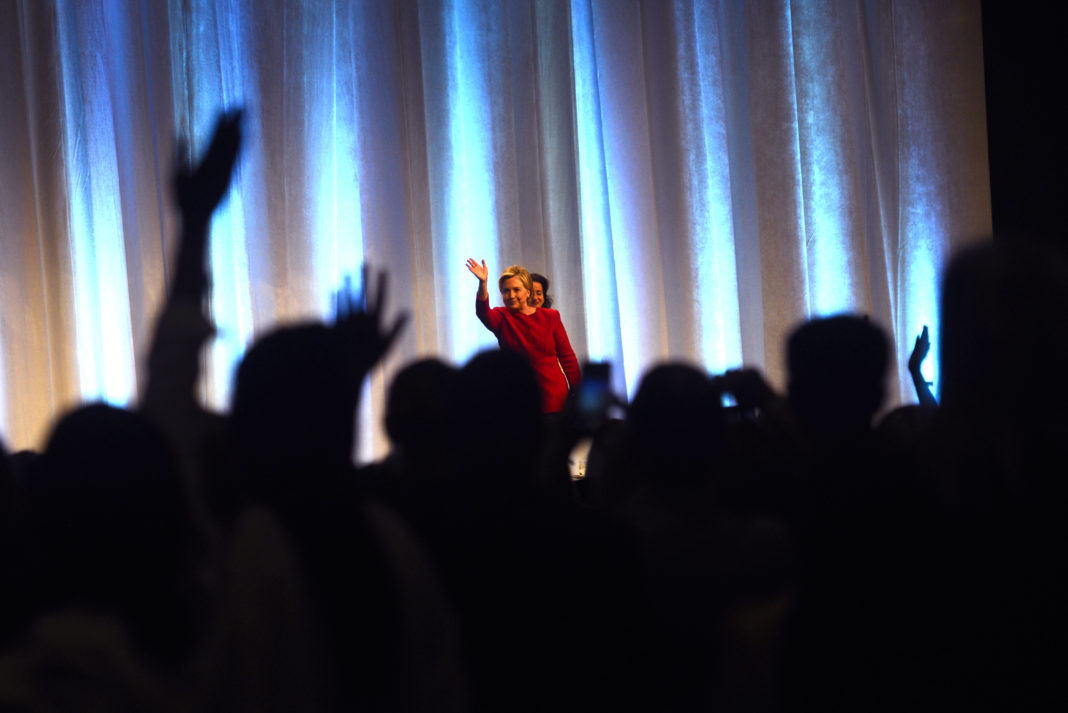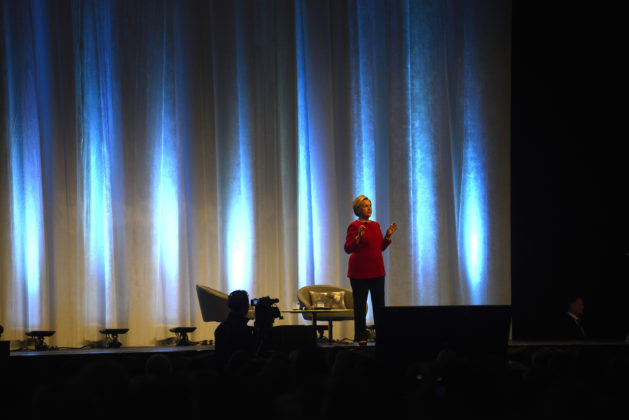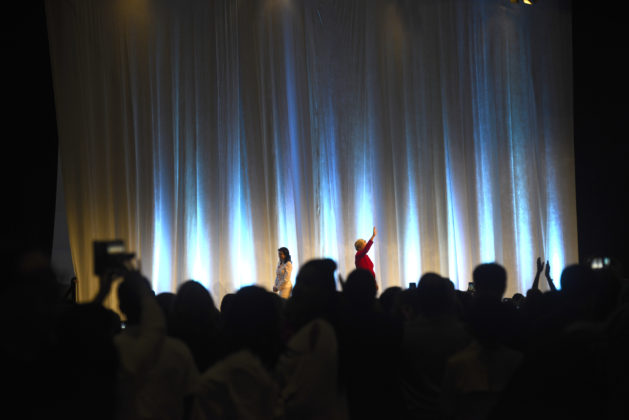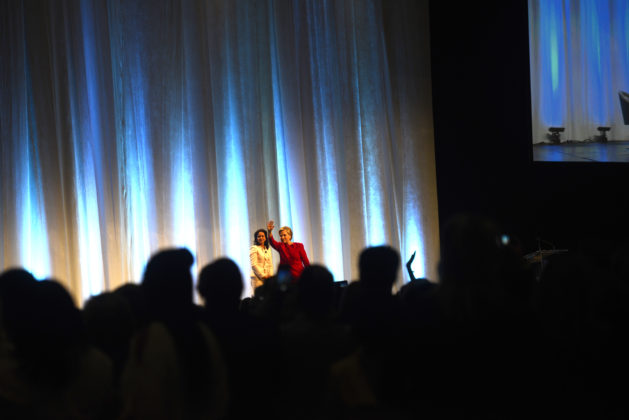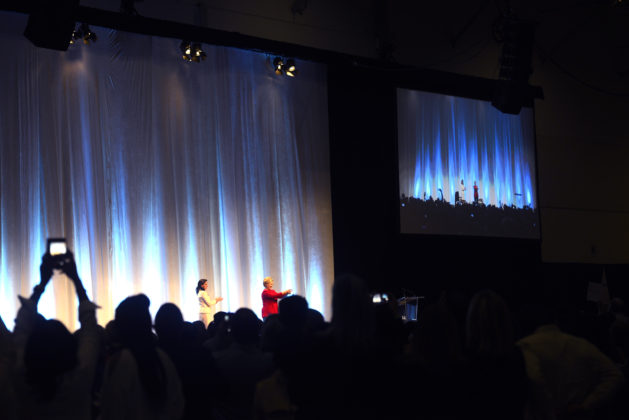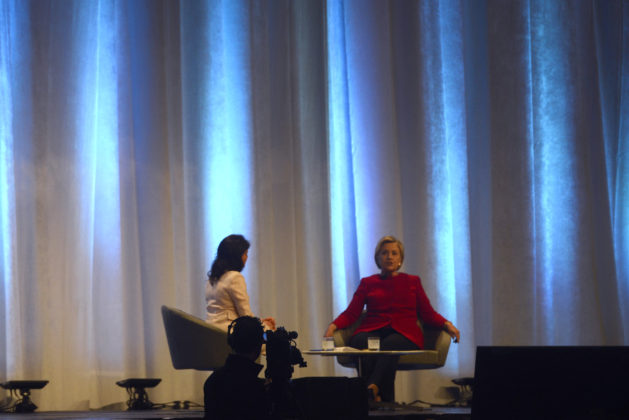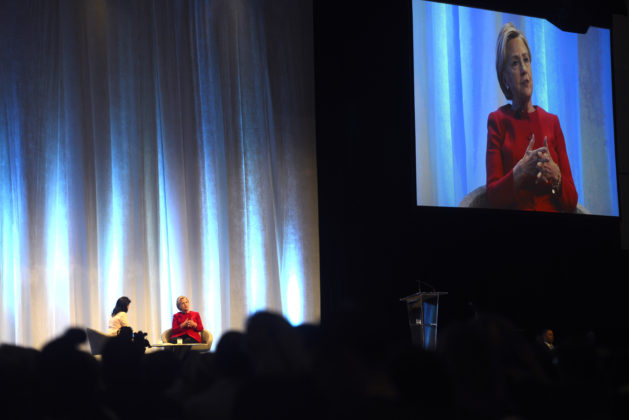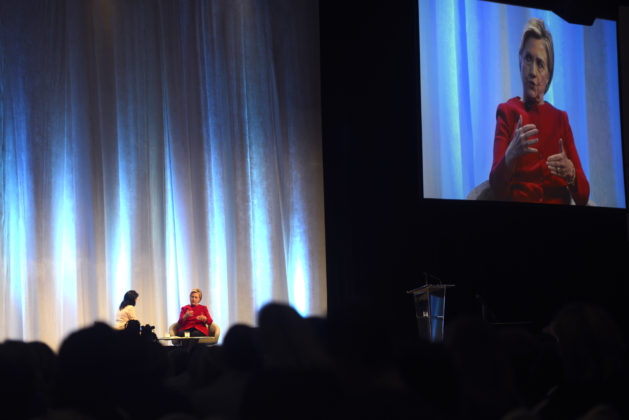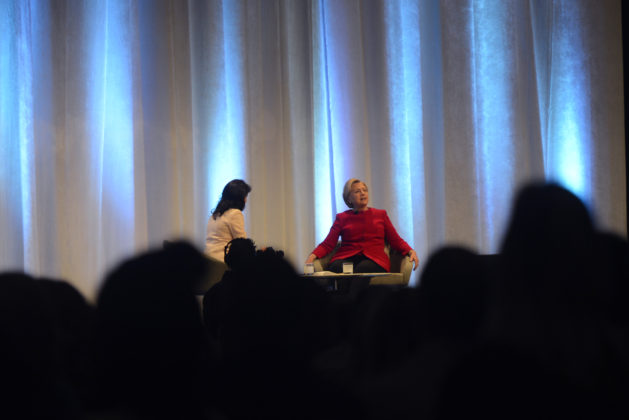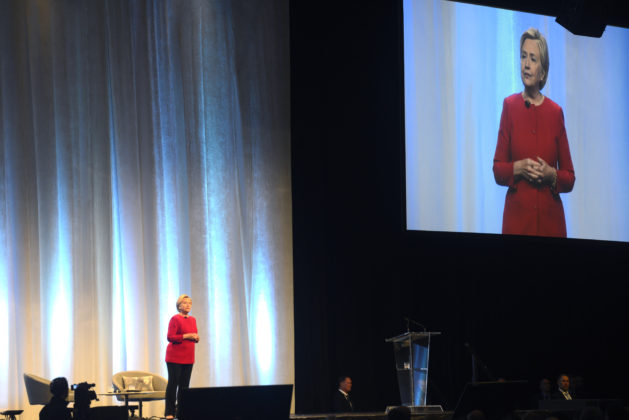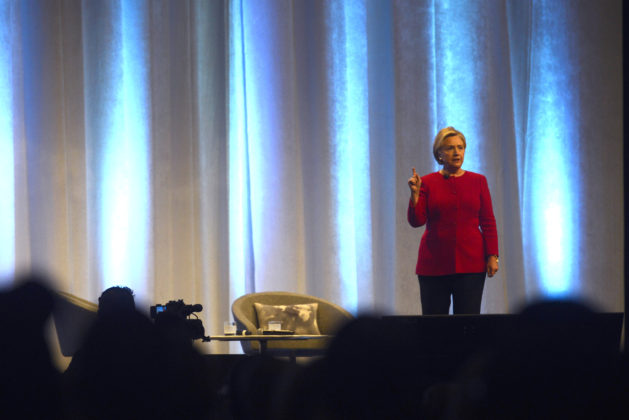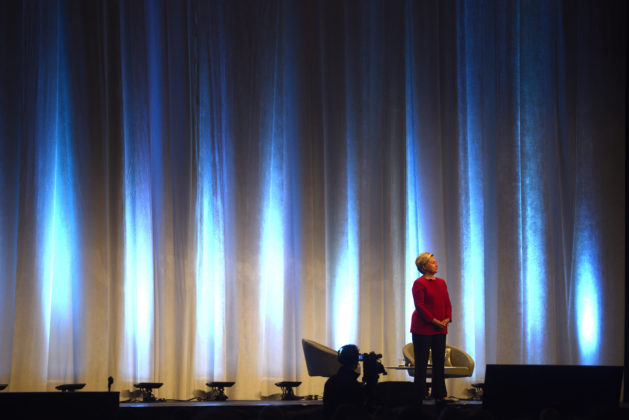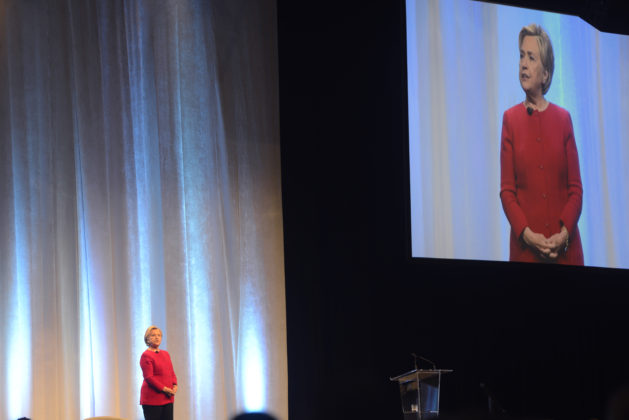After suffering a devastating political loss to Donald Trump in the controversial presidential election of 2016, Hillary Clinton has returned to the world stage to share an important narrative — her own.
Marking the release of her latest publication, Clinton addressed a Toronto crowd this past Thursday, Sept. 28 as part of her promotional book tour.
Titled “What Happened,” the memoir is as much an explanation as it is a question. Herein, Clinton reflects on the factors which contributed to the current and divisive American political climate.
Of compiling the tell-all, Clinton admitted, “it was painful.”
An already overwhelming process of self-reflection, the once-hopeful candidate’s frustrations were exacerbated by issues which, even now, continue to emerge from the White House.
However, Clinton says the resulting vulnerability was a purposeful attempt to tell her side of the story.
“I’ve tried to pull the curtain back to make this as much of a behind-the-scenes look as I could,” she said. “I admit that, you know, I’ve always felt before that I have to be careful in public, to keep my guard up — well that’s all gone.”
From the book, Clinton highlighted four main lessons for readers to draw upon, the first being one to which all people can relate — disappointment.
“You may not lose a presidential election in America but everybody faces loss,” she said. “We all experience that.”
Following such a devastating blow, Clinton noted the importance of recovery.
“I’ll admit, as I do in the book, there were times when I just wanted to pull the covers over my head,” she shrugged. “But I spent a lot of time with my family and my friends and took some long walks in the woods, watched a lot of home and garden TV. I guess people call that self-care and I highly recommend it all.”
Beyond healing, the Democrat also illustrated the importance of forward movement, which she herself pursued in the founding of “Onwards Together,” an organization which now works for the cause of activism and engagement across America.
“I’m convinced that we can take on the challenges we face and get back on the right track,” she said.
In order to find this new direction, the second of four lessons in the book offered some suggestions — specifically, the promotion of women in politics.
Pointing to Prime Minister Justin Trudeau’s gender-balanced cabinet, Clinton praised the broadened political representation achieved by women in politics, which she said allows for the “voices of families, communities, entire nations [to be] heard.”
“So I hope women — and especially young women — will read this book and be inspired to get involved in politics and maybe even run for office [themselves],” she said.
However, as proved in the 2016 election, the challenges facing women in politics does not end at running for office.
As was clear in what Clinton called the “perfect storm” of the 2016 election, there are other political forces at play.
From a press that “obsessed over emails” and an investigation at the hands of then-FBI Director James Comey, to the “information warfare” waged by the Russians, there were more barriers to success than were evident at the time, said Clinton.
Delving particularly into the latter, Clinton stated that foreign interference of the kind is far from a distant threat but rather, a “clear and present danger” which requires “decisive action” on behalf of democracies across the globe.
Fourth and finally, Clinton wished to stress that, “despite the best efforts by some to wage a war on reason and evidence…there is no such thing as an alternative fact.”
From issues of climate change to inaugural crowds, denying truth isn’t “just frustrating…it is insidious and deeply subversive to democracy,” she said.
In light of the events, Clinton hopes the book will serve not only as a legacy but a prompt for action on issues affecting Canadians and Americans alike.
“There’s so much good in both of our countries,” she said, noting the work of volunteers working to assist all those affected by recent natural disasters. “And of course, we should find every opportunity to be active participants, not passive observers in our world.”
How to effect change? According to Clinton, the solution is simple.
“We must refuse to be silent in the face of racism, sexism, bigotry, or rhetoric designed to incite hate and even violence,” she said.
As for Clinton, though her presidential campaign has long ended, she assured the crowd that they wouldn’t have to part just yet.
“I’m not going anywhere,” she said, “except right into the middle of the debates about our future.”
























